We recently asked members of the BuzzFeed Community to tell us about the easy yet effective cooking hacks they swear by. We also perused Reddit to collect a few more useful tips and tricks. Here's what we gathered:
1. "Get a cup of milk and a tablespoon of lemon juice or vinegar, then let it sit for 10 minutes to become a great buttermilk substitute. I hate buying and wasting a pint of buttermilk for one recipe or having a baking bonanza to use it all up. There's no waste with this hack, and no buying an expensive ingredient for only one recipe."
—Anonymous
2. "I have recently started to use kitchen scissors more for chopping small things like vegetables. It usually doesn't occur to me to even use them, but they can save time. You don't have to wash a cutting board, and you won't have to dull your knives at all."
"Scissors are good for things like chives or green onions if you only need a little bit. You can drop them directly into a prepared dish as you cut. Your cleanup is done after rinsing the scissors rather than washing a new knife and scrubbing the green stains off the cutting board."
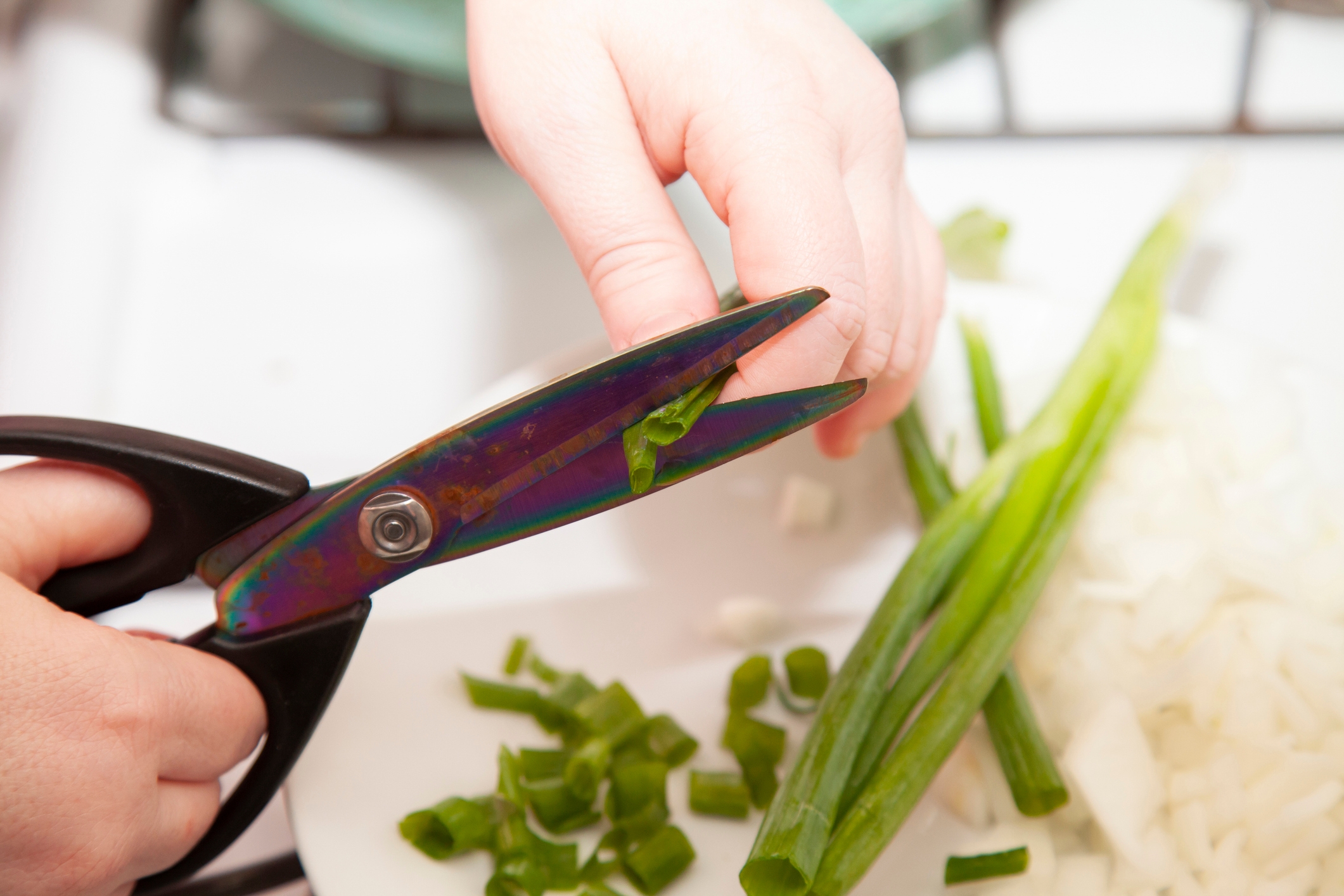
3. "Put a paper towel in the container or bag of greens like spinach or cut lettuce. It helps them last longer and not go soggy."
4. "Microwaving garlic cloves for 15 seconds makes them so much easier to peel! They slide right out."
—Anonymous
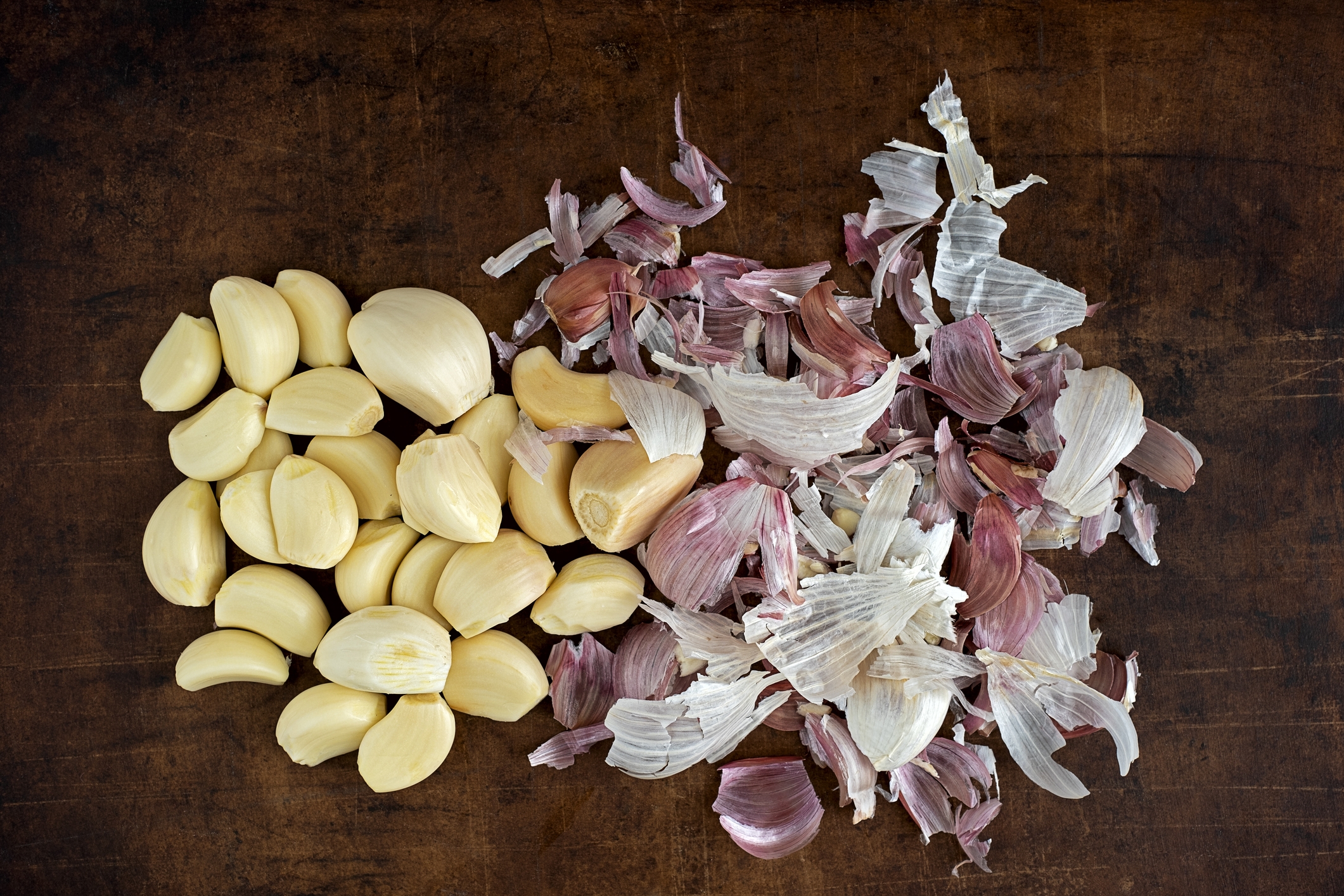
5. "If you need to measure peanut butter or other sticky substances in a measuring cup, line the cup with plastic wrap first. Don't coat the cup with a nonstick cooking spray because, to me at least, it leaves a nasty taste behind in the peanut butter."
6. "For fluffy scrambled eggs, add some heavy cream and whip them for 30 seconds."
—Anonymous
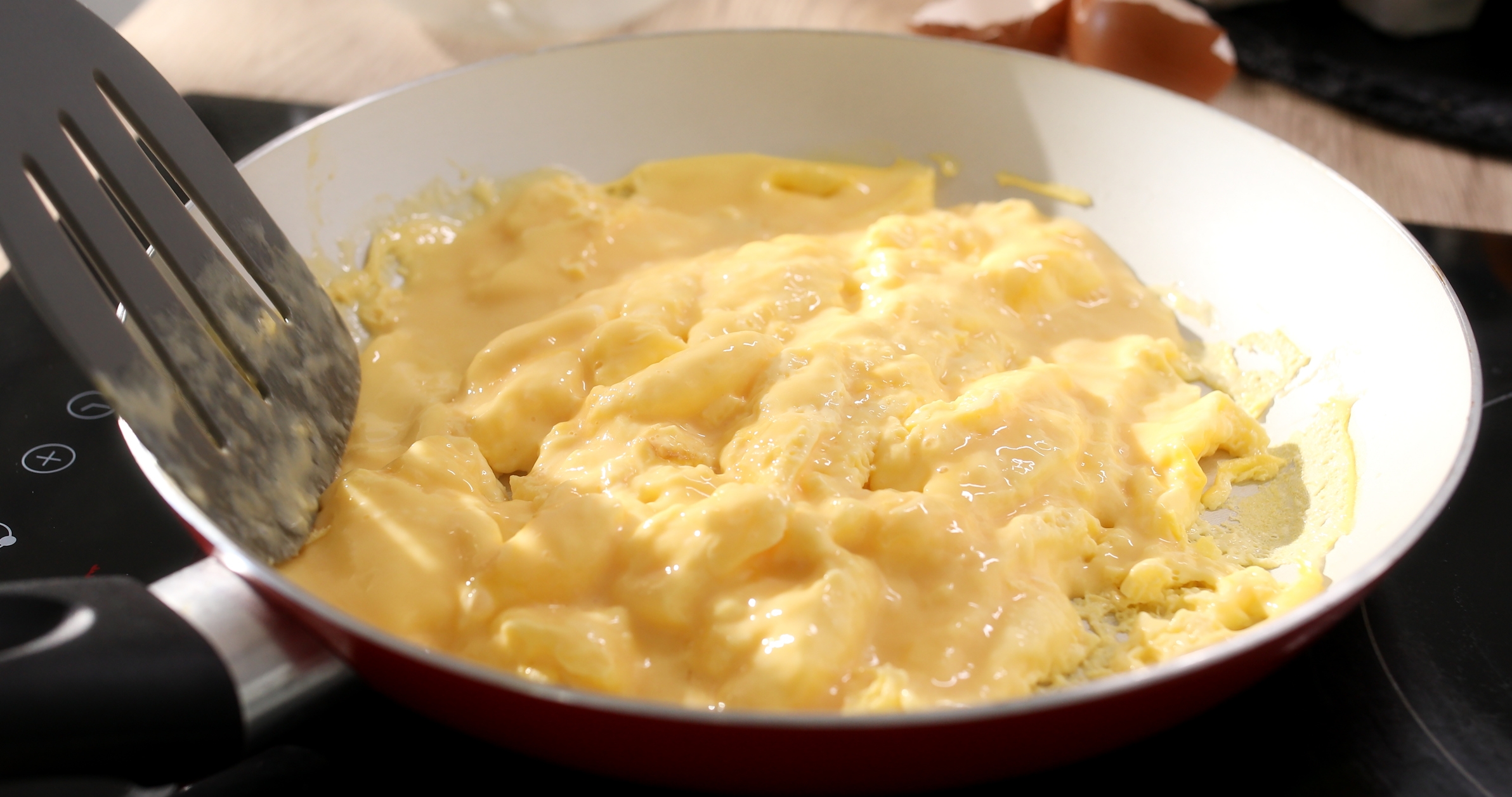
7. "Anytime veggies need to be pre-cooked and it would dirty another pan (e.g., quiche, pastas, soups/stews/chili), I roast them instead (on a parchment-lined tray = zero clean-up!). It's hands-off and doesn't require washing any extra dishes. Do the veggies beforehand or while getting together other parts of the recipe."
—Anonymous
8. "A wooden spoon placed across the top of a pot of boiling water will stop it from boiling over."
—Anonymous
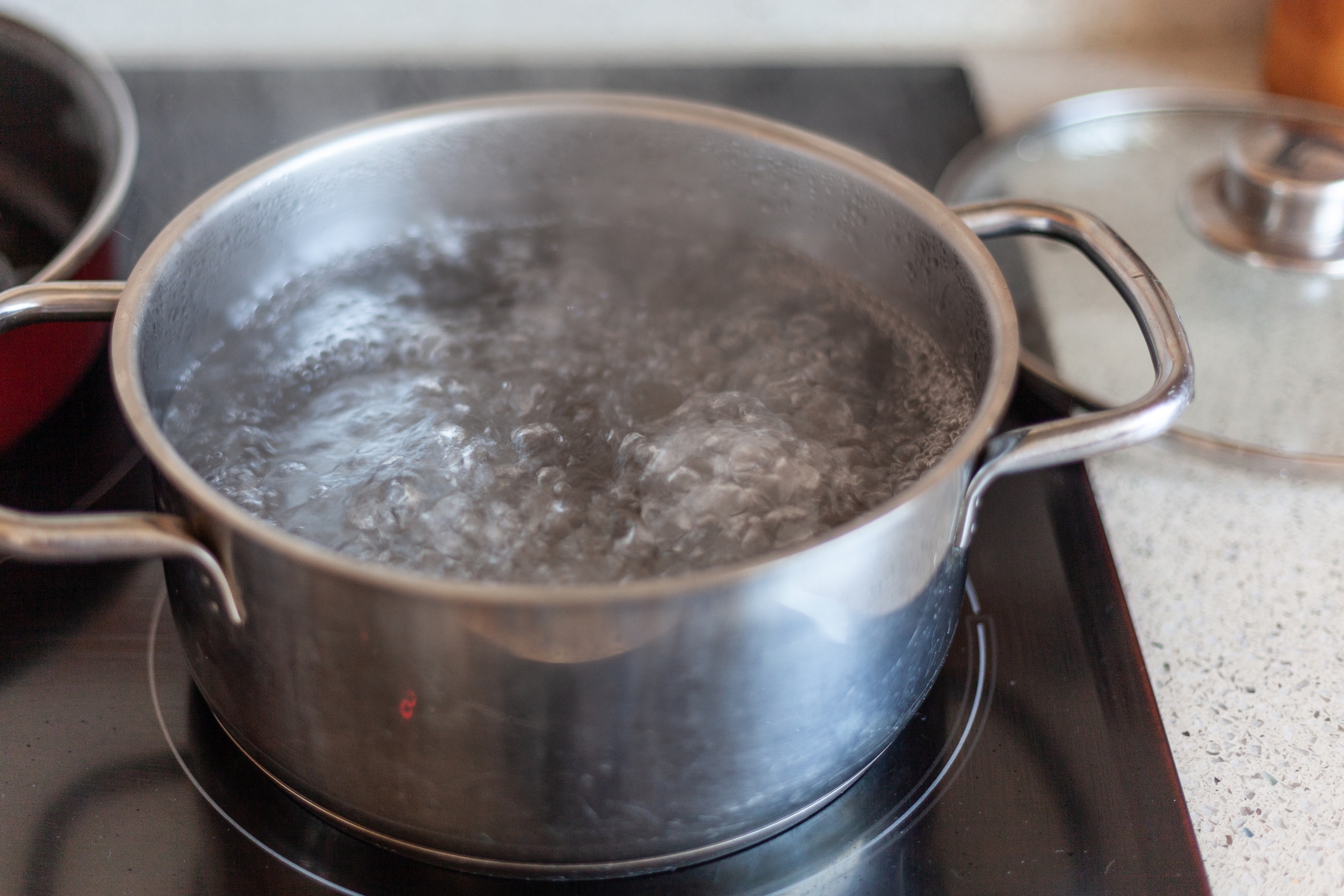
9. "Dice and freeze vegetables that are close to their expiration date so you can pull out ready-made vegetables whenever you're in need!"
10. "When chopping onions, get a little ramekin and fill it with olive oil. Dip two fingers in the oil and rub the knife with them. Rub downward and pinch your fingers together as they reach the blade. You'll probably need to reapply the oil a couple of times as you chop. If you do this, your eyes shouldn't tear up. Ta-da!"
—Anonymous
"To get that onion smell off your hands, rub your hands with lemon juice. If you start crying while cutting onions, stick your head in the freezer and fan the cold air over your eyes. It takes it away almost instantly."
"This works, although I've discovered something easier. Rub your fingertips on the flat of a knife, or any stainless steel object, to remove onion or garlic smells. It works instantly and wastes nothing. To stop your eyes from watering, put a little dish of water or a wet paper towel right by the cutting board when chopping onions. The sulfur is looking for water to make sulfuric acid; if it finds the water you put out for it before it finds your eyes, there will be no tears. I've used both of these for many years now, and it should be standard practice to include them when teaching someone to cut onions."
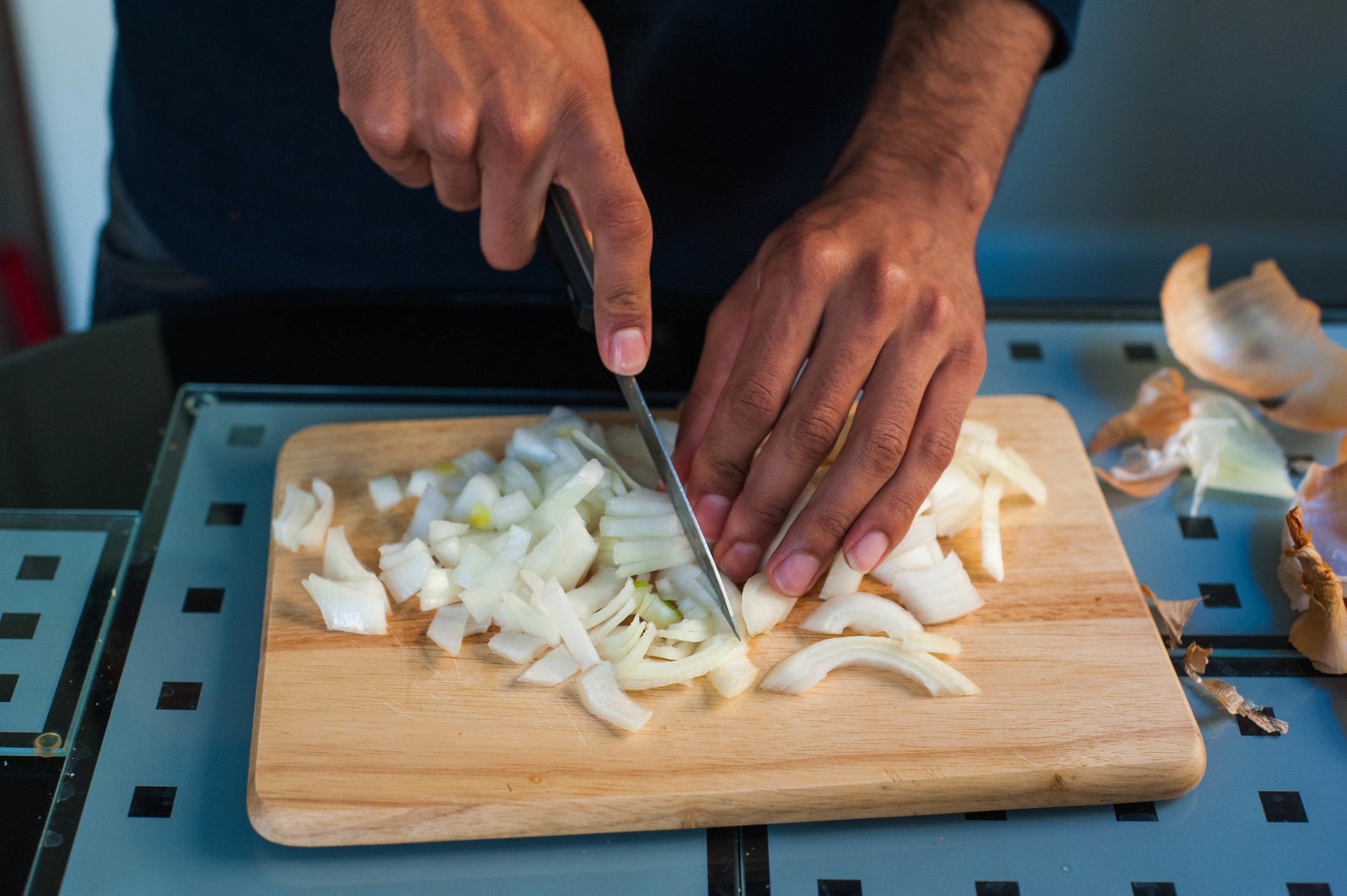
11. "MSG is not just for Asian cuisines. Pasta sauce, soups, and mac and cheese have all been made wayyy better just by adding a little sprinkle of MSG."
—Anonymous
12. "If your brown sugar becomes hard, place it in a sealed container with some bread slices. Leave overnight and check, and it should be soft again. The brown sugar will absorb the moisture from the bread."
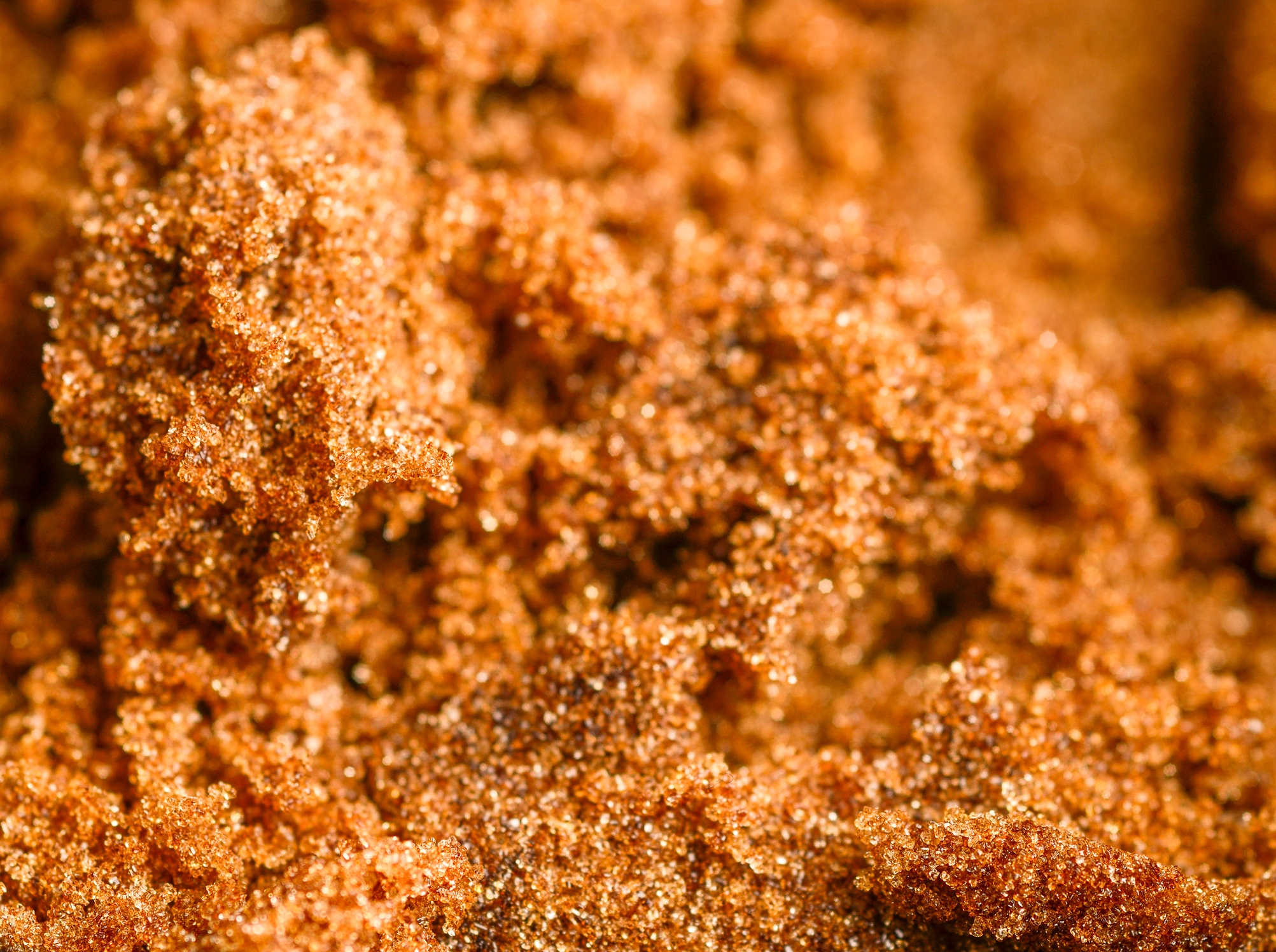
13. "To make the easiest whipped cream, freeze the bowl and the beaters and add a tablespoon of vanilla instant pudding to the mixture. You will have the best whipped cream."
—Anonymous
14. "If you're going to knead bread dough with your hands, oil or butter up your hands and wrists before you begin so your skin can absorb the oil or butter. It'll make it so much easier to clean your hands afterwards."
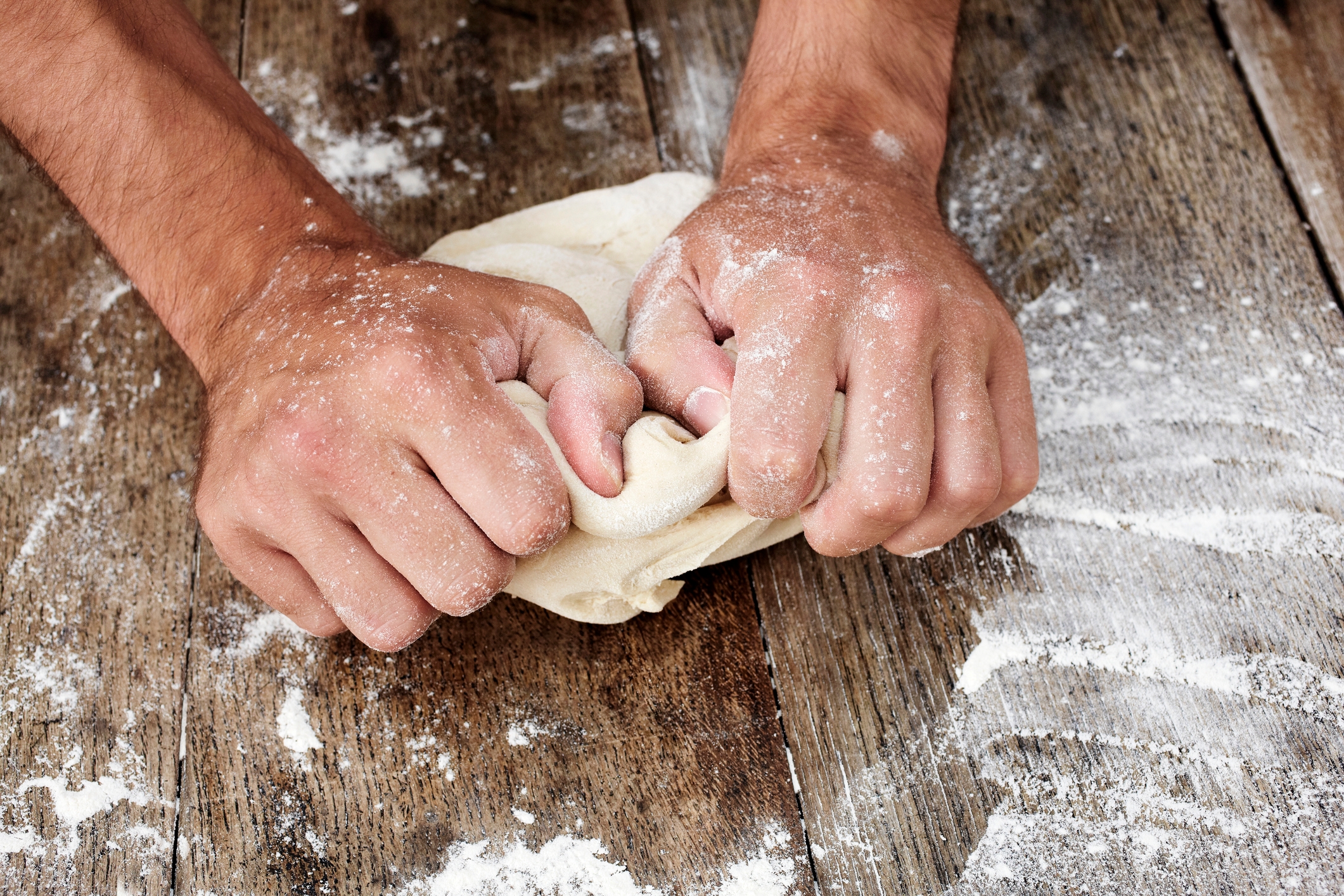
15. "The lids from 16-oz plastic peanut butter jars fit onto mason jars. They're much better for storing things in mason jars. No more rusty rings."
"The red lids from the Kraft parmesan cheese containers do as well, and they have the shaker holes too."
16. "Use a Crock-Pot! It has big advantages: You can dump your ingredients in the morning, turn it on, and come home from work to a ready-cooked meal. The low and slow heat breaks down meat much better (makes it more tender) without drying it out. It melds flavor better; herbs release more of their flavor. And, you're far less likely to burn anything."
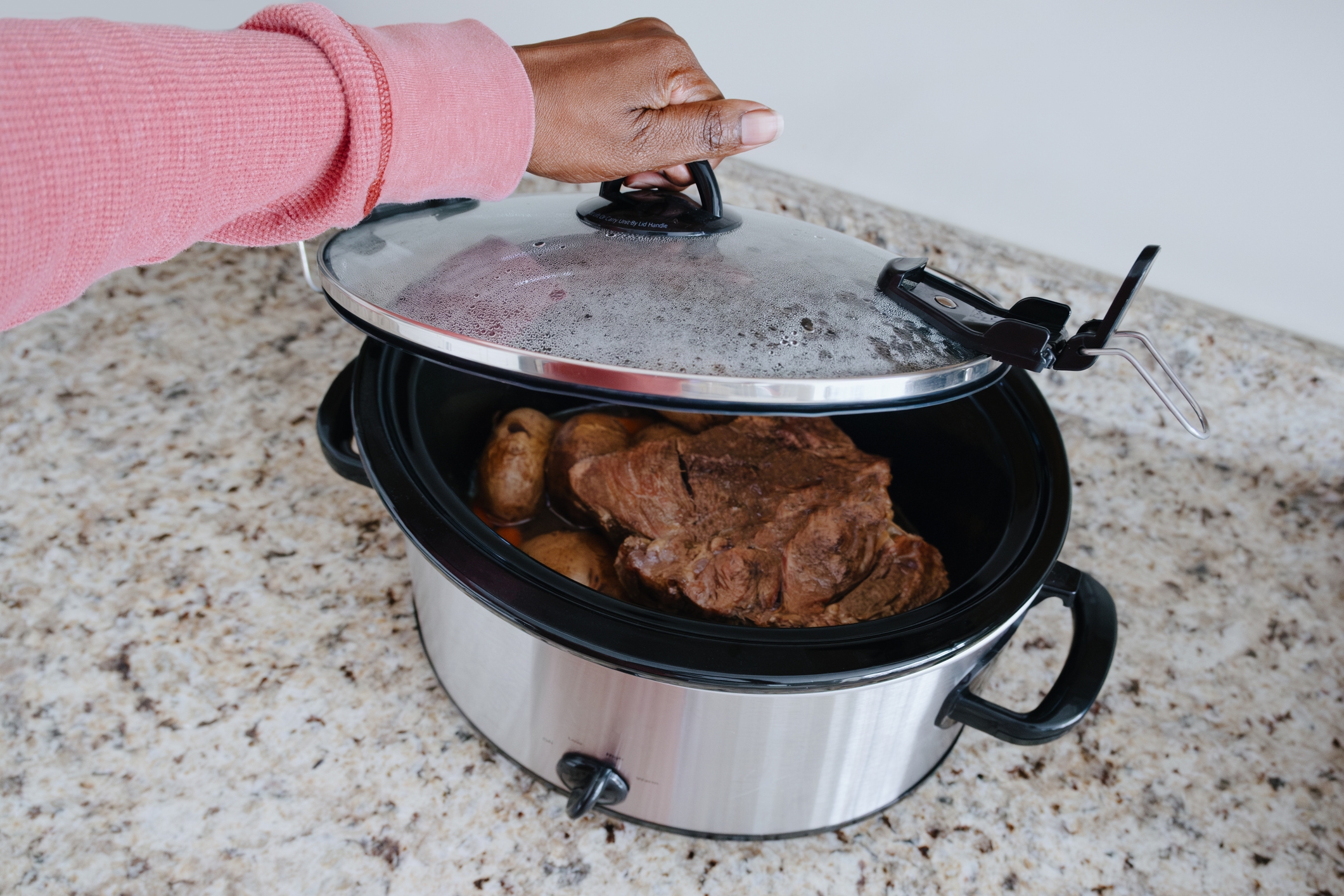
17. "Dampen the outside of loaf-type breads (not pre-sliced) with water, wrap with foil, and bake at 300 degrees Fahrenheit for 10 minutes. Unwrap and bake for a few more minutes, and it's almost like new."
18. "Parchment paper. Line your baking sheets and pans with it before cooking or baking in the oven. Line your drip tray when using a baking rack. It makes cleanup a snap and helps insulate foods from burning. Tolerant to 420 degrees Fahrenheit, it can be used for most oven dishes."
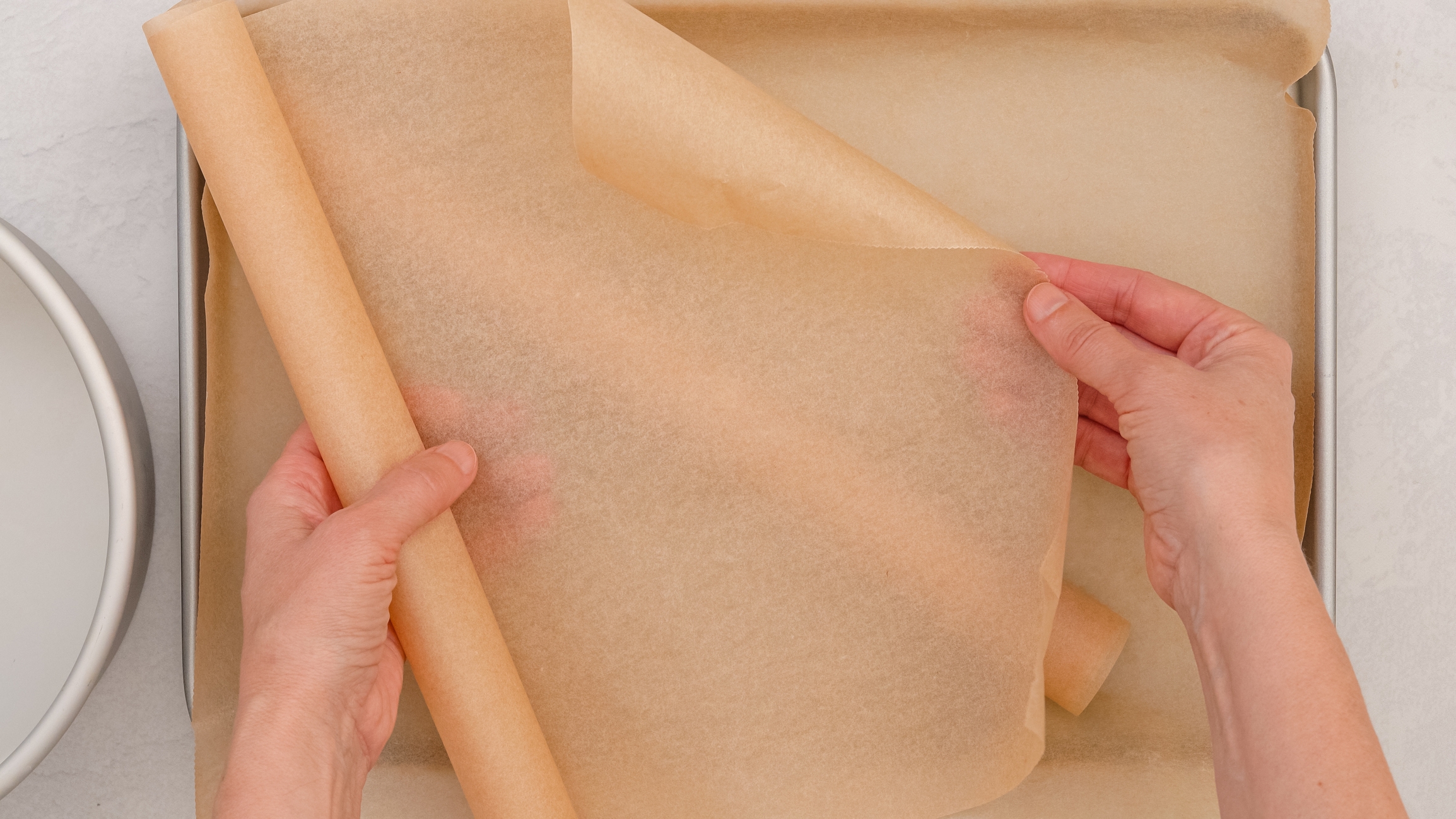
19. "A damp paper towel under the cutting board keeps it from slipping."
20. "If you have an electric kettle and need boiling water for something, it goes much faster if you boil the water in the kettle first, then pour it into a preheated pot."
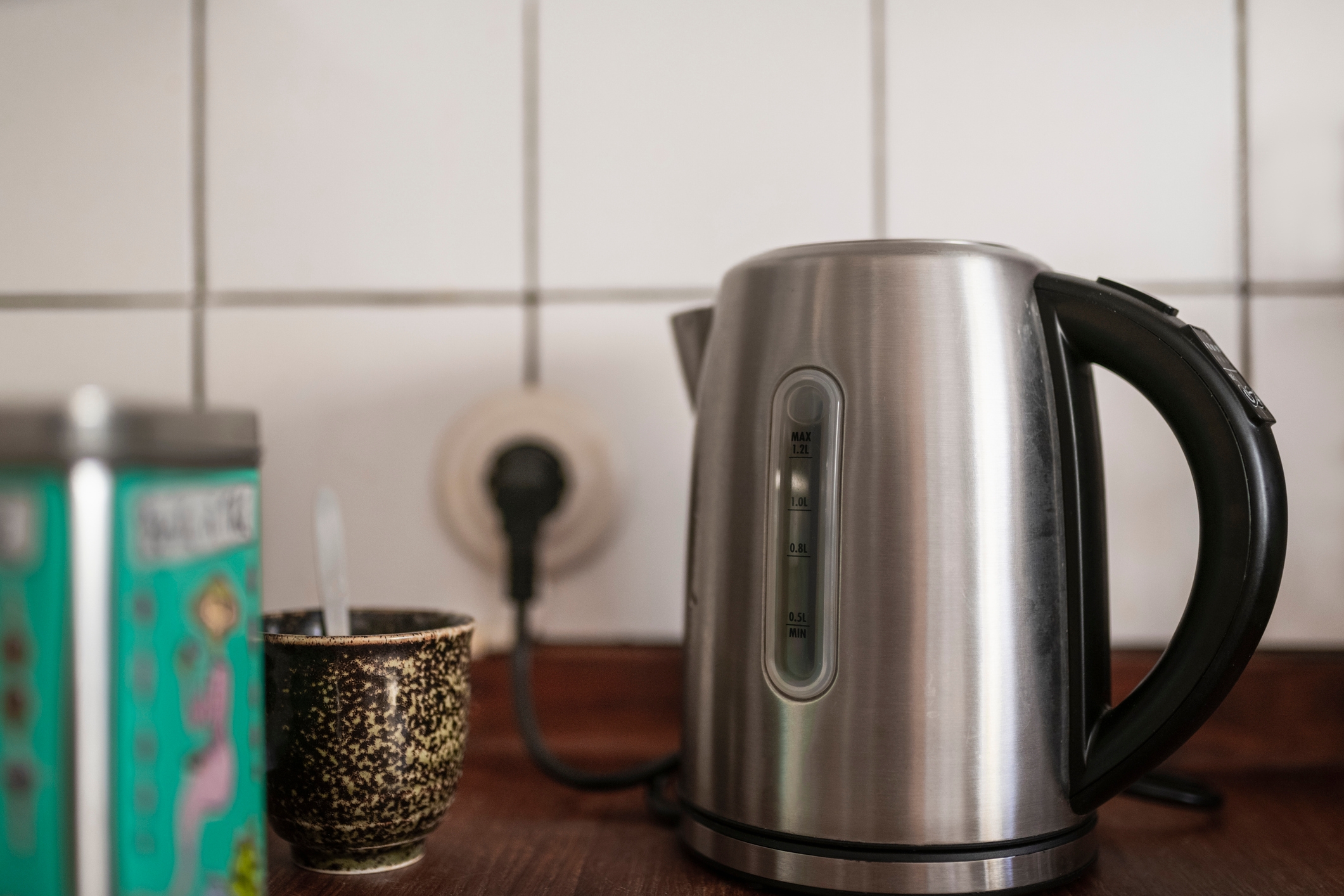
21. "Fry your rice in a bit of oil before you boil it. No more gluey sticky rice. I was told to rinse my rice in water until it ran clear and rinse off all the starch. It was still gummy and sticky. Then I learned from a Mexican lady to heat the pan with oil, fry the uncooked rice until the kernels turn white (not translucent), and then pour in the water (or broth). The rice turns out perfect every time and doesn't stick together. I use this for ALL rice now. It especially works well for fried rice. It cooks the layer of starch on the outside rather than dissolving into the water and forming a sticky, gluey mess."
22. "Add salt to each layer of food as you cook (not just at the end). Unless you're eating a ton of processed food or have a health reason for reducing your sodium intake, you don't need to be afraid of salt. Adding it as you cook makes a difference, rather than waiting until the end. And for the love of all that is holy, stop using basic table salt."
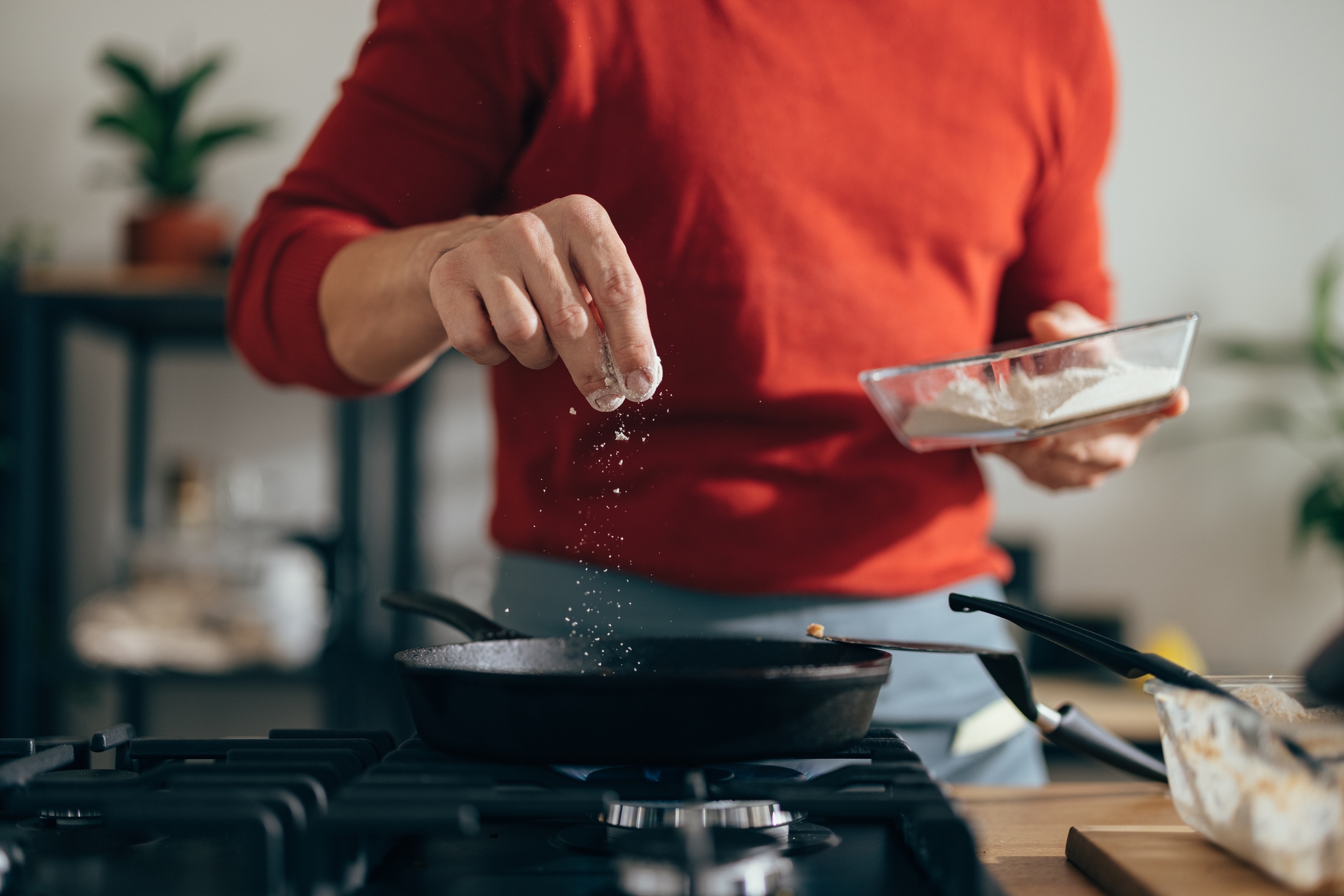
23. "To get parchment paper to stay in a baking pan, I crumple it into a ball before I line it. Once I uncrumple the paper, it is much easier to use for lining. I don't need to do this for baking sheets, but it's especially helpful with deeper pans. I saw a YouTuber do this, and it made my life so much easier."
—Anonymous
24. "If you've already put salt in something and it doesn't taste seasoned, put some acid (such as lemon juice or vinegar) in before adding more salt. Sometimes we mistake a lack of acid as a lack of salt."
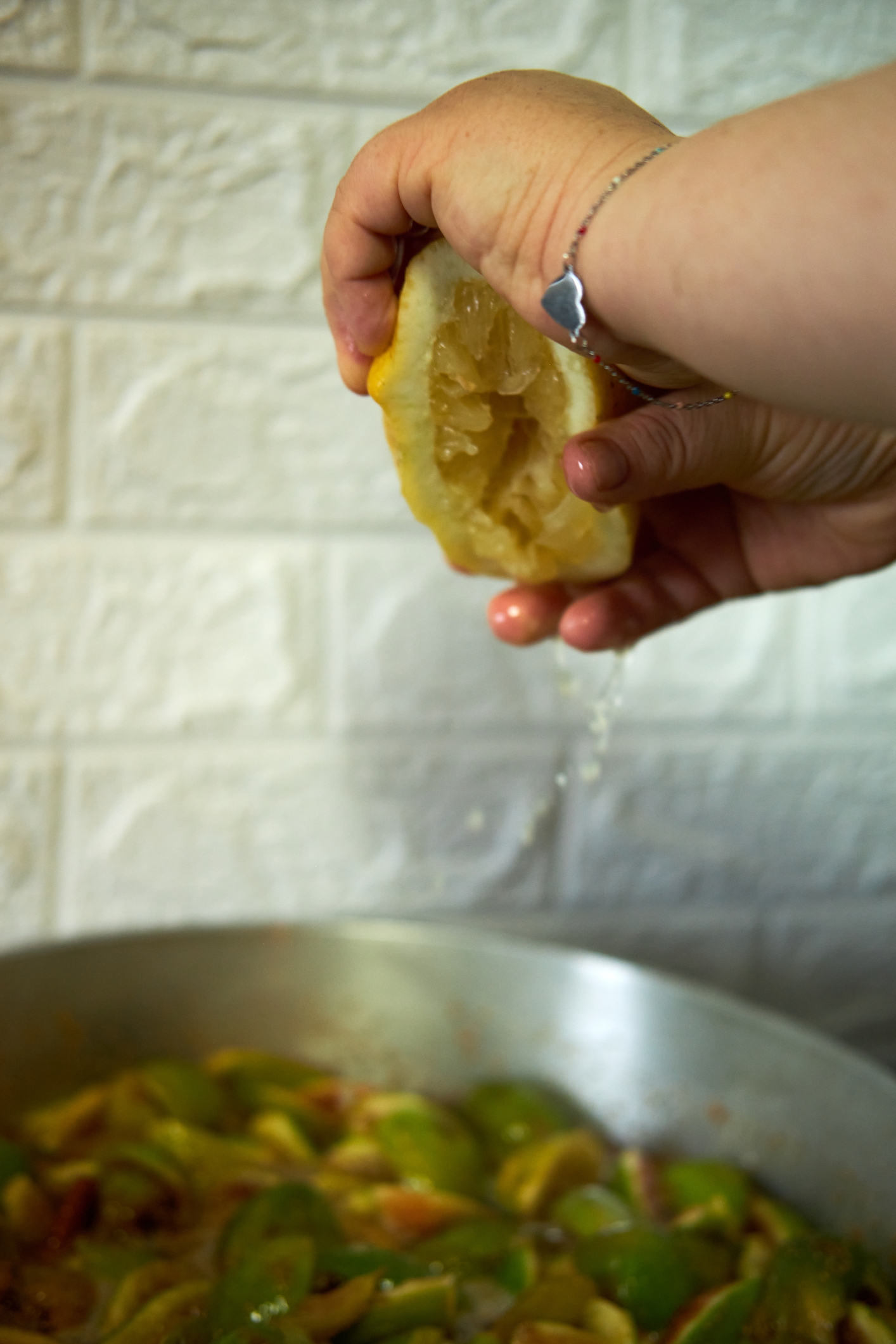
25. "Bloom spices in oil on very low heat to enhance flavors."
26. "When cutting meat into smaller pieces, always cut across the grain so it will be more tender and pleasant to eat."
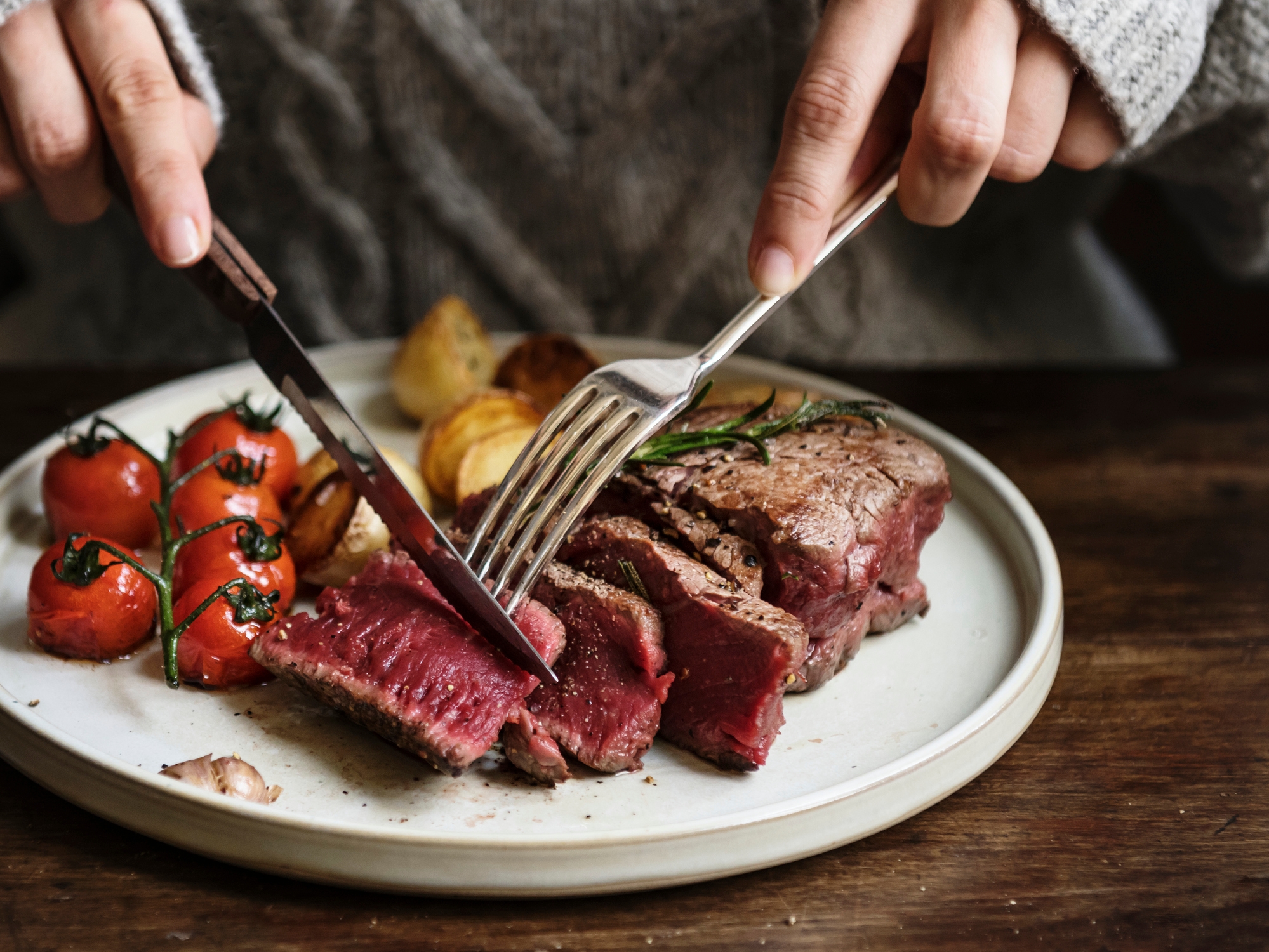
27. And: "Read the recipe twice! Have your ingredients out and ready to use. It makes cooking and cleaning up so much easier! I could clean as I cooked when I did just that one little thing!"
What's your go-to simple yet effective cooking hack? Tell us in the comments or share anonymously using this form.
Note: Submissions have been edited for length and/or clarity.
